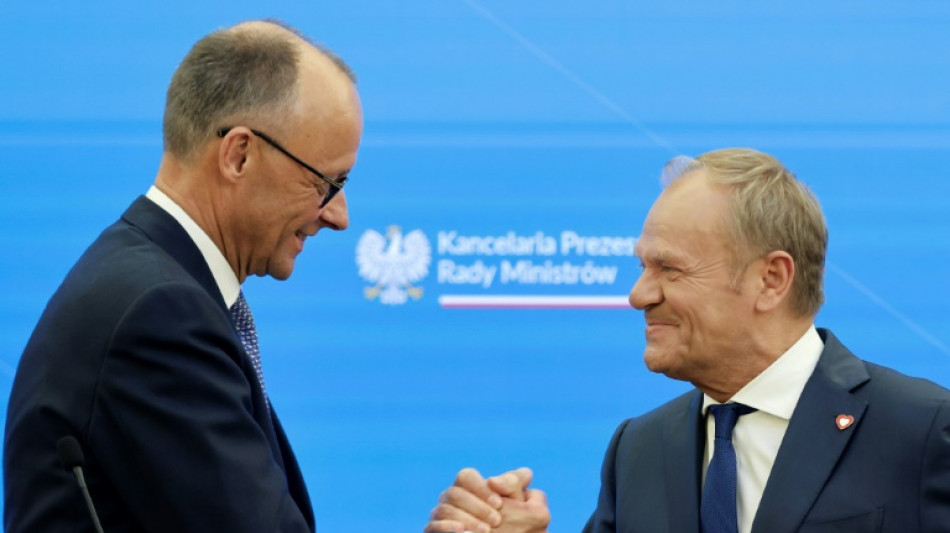
RBGPF
0.0000


Germany's new Chancellor Friedrich Merz on Wednesday said that Berlin supports relaxing strict EU fiscal rules to let member states ramp up defence spending as he sought to establish his European credentials on his first foreign visits.
Less than a day after scrambling to get enough votes in parliament to secure his job, Merz visited France and Poland in a high profile start to his term when he will have the threat of the Ukraine war, transatlantic tensions and domestic worries over the far-right to tackle.
In Paris, Merz said that he and France's President Emmanuel Macron had "agreed a new start for Europe", though he gave few details.
The 69-year-old Christian Democrats head turned his attention to the European Union's military spending in Poland, a key ally of Ukraine in its war with Russia.
Speaking at a press conference with Polish Prime Minister Donald Tusk, Merz pointed to recent changes to Germany's constitutional debt rules to largely exempt defence spending.
"We could imagine something similar for the European fiscal pact or fiscal rules," he said.
- More bazookas -
The continent has been looking to rearm following Russia's invasion of Ukraine and US President Donald Trump's changing stance on European security.
In April, the European Commission said it would relax strict rules limiting public debt in order to allow states to spend up to 1.5 percent of national output on defence for four years.
EU members are bound by spending rules obliging them to keep the public deficit below three percent of economic output and debt at 60 percent of GDP.
But the EU can suspend the rules in exceptional circumstances and crises, as it did during the coronavirus pandemic when states had to prop up their embattled economies.
Sixteen countries, including Germany, have said they want to make use of the exemption.
Merz and his Social Democrat (SPD) coalition partners pushed the change to Germany's constitution through the parliament earlier this year, enabling a "bazooka" of borrowing to upgrade Germany's defence and infrastructure.
Merz also said it was important for the EU "to produce more" of its own military equipment and to harmonise weapons systems across member states.
"We must make sure the European members of NATO, and the whole European Union, are able to defend themselves on a long-term basis," he said.
Tusk in turn praised what he called a "new opening" for the countries' relations that could be "the most important in the history of German-Polish relations in more than 10 years."
Tusk said Europe's external frontiers had to be strengthened to defend internal travel. Merz's government, which has seen the far-right seize on fears over migration, controversially announced on Wednesday that border guards would be told to push back most asylum seekers.
Tusk said it was "in the interest" of Germany and Poland to maintain "free passage" between their countries and that more attention should be "concentrated on the protection of the external borders" of the European Union.
In a new sign of EU leaders' desire to strengthen their standing, the French and Polish leaders will on Friday sign a new friendship alliance that will include security cooperation.
Y.Su--ThChM